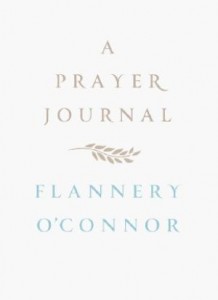I admit it. I almost can’t wait for this book to come out and keep wondering how I could get my hands on an advance copy. As far as the significance of Flannery O’Connor as a writer – believer – artist, I think Br. Louis, a.k.a. the very accomplished author of The Seven Storey Mountain, said it best:
“When I read Flannery O’Connor, I do not think of Hemingway, or Katherine Anne Porter, or Sartre, but rather of someone like Sophocles. What more can you say for a writer?” —Thomas Merton
Or, then there was my own story. When I was seventeen, I complained to my slightly older and much wiser sister, Cynthia, that I hated Flannery O’Connor, and found her work gross, macabre and dark. My sister sighed and looked away, saying, “Barb, it’s going to take the Church a hundred years to figure out where Flannery O’Connor left us in terms of literature.” I remember thinking, “Damn. I’ll take another look.”
And in the intervening years I have. Again and again and again. And as I have gone ahead as a writer and storyteller and Catholic, the look has become more sustained and always filled with more awe and wonder. Sometimes I literally burst out laughing when I become aware of some of Flannery’s mastery of craft peeking out from behind an odd turn of phrase. She is unquestionably the best that modern letters has produced.
When people tell me they don’t like Flannery’s work, I always have an experience of amazement that makes me tilt my head and look at them with a wince. Like they’ve unknowingly told me way TMI. It’s like that great moment in the film Amadeus, when the “Weekend Music Expert” Emperor Joseph frustratedly complains to Mozart that his symphony has “too many notes” and says to take some out. To which, Mozart replies with equal frustration, “Which ones? They’re all perfect!” But I never set too uppity because there is always the fact of my own once double-ignorance as regards Flannery. The truth is, seeing what Flannery has done is a multi-leveled grace. The first level is just simply being able to receive the stories and go with their quirky characters and bizarre plot reversals. The next level is being unconsciously converted by the same. The final level is being aware of the rare artistic/discipleship gift of being able to create true parables – in every sense of that word as both story and evangelization.
Friend, and fellow Flannery admirer, David Taylor, has a few excerpts from the book, here.
My only question is whether there is mainly new stuff in this book, or whether it is mostly a compilation of stuff from Habit of Being. Whatever, it has already been so encouraging just to read stuff like this from the upcoming release:
I want very much to succeed in the world with what I want to do. I have prayed to You about this with my mind and my nerves on it and strung my nerves into a tension over it and said, ‘oh God, please’, and ‘I must’, and ‘please, please’. I have not asked You, I feel, in the right way. Let me henceforth ask You with resignation–that not being or meant to be a slacking up in prayer but a less frenzied kind, realizing that the frenzy is caused by an eagerness for what I want and not a spiritual trust. I do not with to presume. I want to love.











